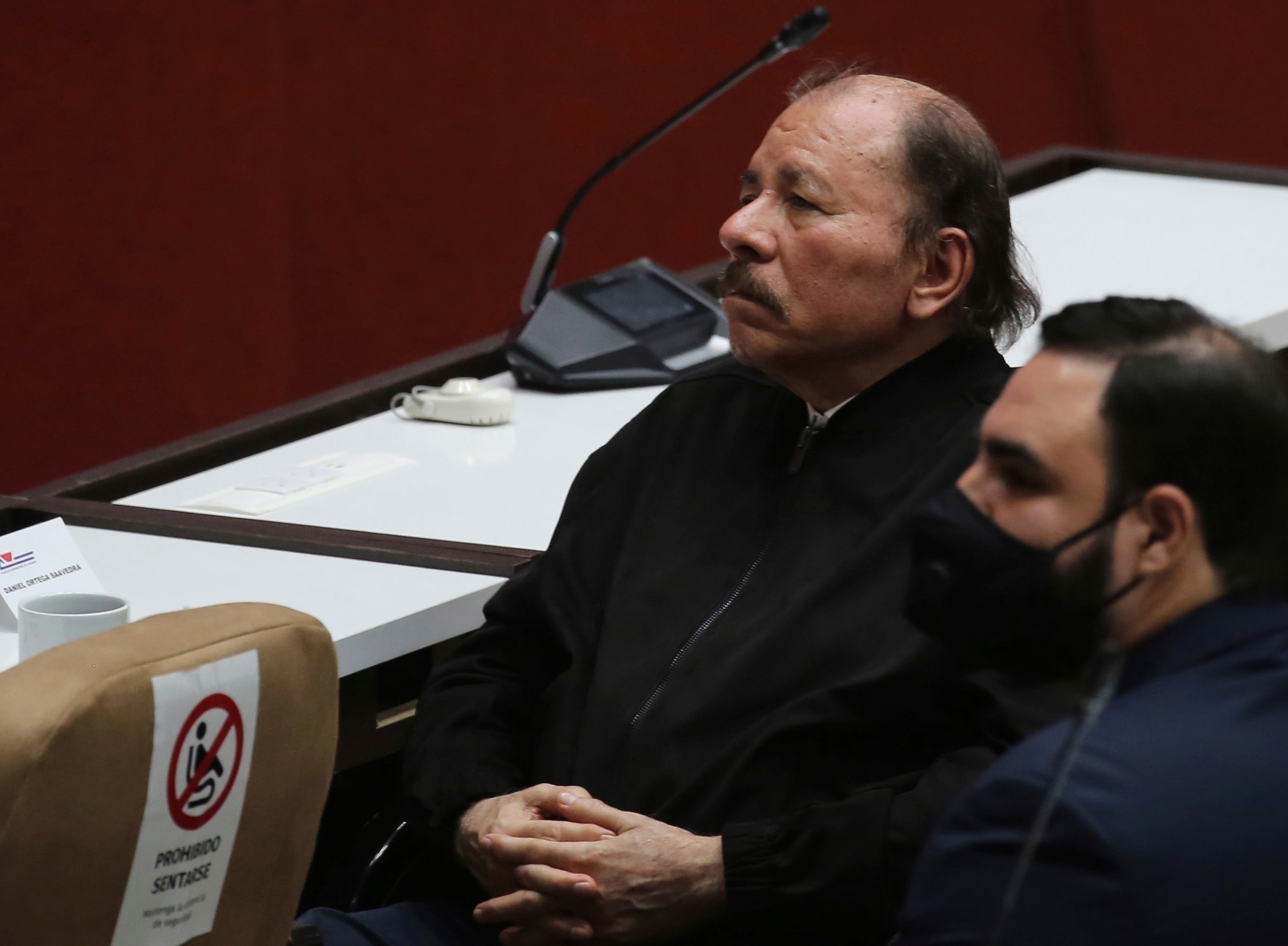US sanctions Nicaragua officials as Ortega inaugurated again
The U.S. Treasury Department has slapped sanctions on more Nicaraguan officials, on the day President Daniel Ortega is to be sworn following highly questionable elections

The U.S. Treasury Department slapped sanctions on more Nicaraguan officials Monday, the day President Daniel Ortega is to be sworn following highly questionable elections.
The Treasury Department announced it will freeze the U.S. assets of the defense minister, and five other officials in the army, telecom and mining sectors. As with dozens of Nicaraguan officials already under sanctions, U.S. citizens will be prohibited from having dealings with them.
The State Department is also imposing visa restrictions on 116 individuals linked to the Ortega regime, “including mayors, prosecutors, university administrators, as well as police, prison, and military officials.”
Ortega was elected to a fourth consecutive term in Nov. 7 elections which were broadly criticized as a farce after seven likely challengers to Ortega were arrested and jailed in the months prior to the vote. His inauguration ceremony is expected to be held later Monday.
With all government institutions firmly within Ortega’s grasp and the opposition exiled, jailed or in hiding, the 75-year-old leader eroded what hope remained the country could soon return to a democratic path. Instead, he appeared poised to test the international community’s resolve and continue thumbing his nose at their targeted sanctions and statements of disapproval.
The State Department said Nicaragua “continues to hold 170 political prisoners, with many of those detained suffering from a lack of adequate food and proper medical care.”
The Ortega regime has been hit by rounds of condemnation and sanctions since the vote.
Nicaragua’s government announced in November it will withdraw from the Organization of American States, after the regional body accused Ortega’s government of acts of repression and rigging the election.
The OAS General Assembly voted to condemn the elections, saying they “were not free, fair or transparent, and lack democratic legitimacy.”
Twenty-five countries in the Americas voted in favor of the resolution, while seven — including Mexico — abstained. Only Nicaragua voted against it.
Ortega's defiant stance has placed Latin American governments in the dilemma of deciding whether to send representatives to the inauguration ceremony.
The Mexican government, for example, flip-flopped repeatedly Sunday and Monday on whether it would send anybody.
On Sunday Mexico said it would send a mid-level foreign relations official, then said it wouldn't. President Andrés Manuel López Obrador said Monday that he wasn't sure, then corrected and said he would send the charge-d'affaires at the Mexican Embassy in Managua.
The list of those expected to attend includes representatives from China, North Korea, Iran, Russia and Syria.
Bookmark popover
Removed from bookmarks